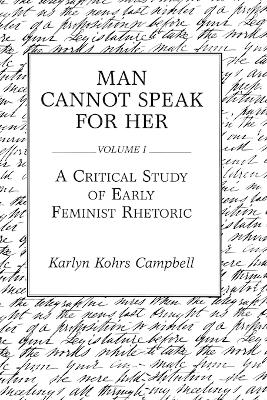Strenuously attacked for their attempts to involve themselves in concerns outside the home, nineteenth-century women reformers soon recognized the need to work for their own rights before they could effectively champion other reformist causes. This book examines the creative response to that challenge. It offers critical analysis of the speeches and writings that set forth the platform and arguments of the early woman's rights movement and guided its development from the 1840s through the early decades of the twentieth century.
Following an introductory overview of the movement, Campbell examines the rhetoric of leading female abolitionists whose initial struggle revolved around achieving the right to speak in public. She next looks at their response to opposition based on theology and the universal moral standard the reformers proposed. The author describes the rhetoric of the various woman's rights conventions and how movement leaders adapted their appeals to male legislators. Conflicts between social and natural rights feminists and between white and Afro-American women are considered, and the rhetorical positions that came together to achieve suffrage are analyzed. In her final chapter, Campbell comments on the rhetoric of the National Woman's Party and the demise of the woman's rights movement in the 1920s. A stimulating analysis of the rhetorical contributions of the best-known and most effective of America's early female reformers, this work, together with its companion volume, should be considered for courses on American public address, women's rhetoric, social movements, and U.S. women's history.
- ISBN10 0275932699
- ISBN13 9780275932695
- Publish Date 25 July 1989
- Publish Status Active
- Publish Country US
- Publisher ABC-CLIO
- Imprint Praeger Publishers Inc
- Format Paperback
- Pages 224
- Language English
